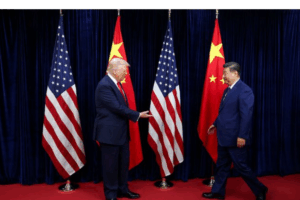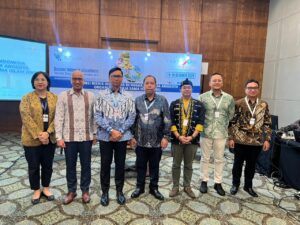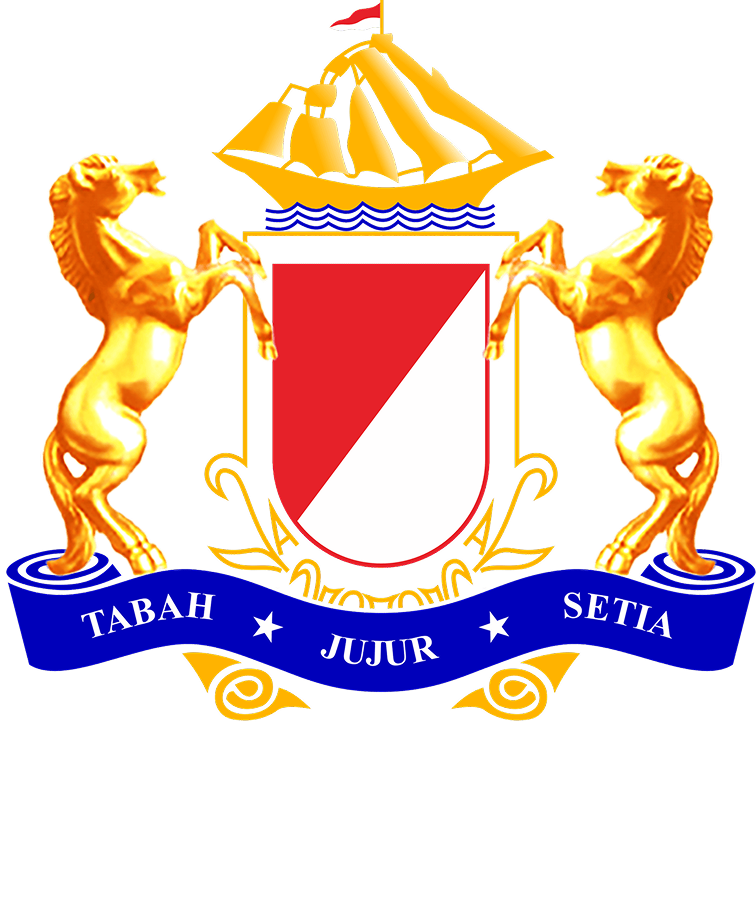Jakarta, 23 September 2025 – The Kadin Indonesia Institute (KII) hosted a delegation from the Kyushu-Asia Institute of Leadership (KAIL), Japan, as part of their Business Study Tour (BSD). The visit brought together 26 participants representing strategic sectors such as transportation, energy, construction, finance, healthcare, IT, shipbuilding, and local government. The program aimed to provide insights into Indonesia’s socio-economic priorities, explore opportunities for bilateral cooperation, and strengthen relationships between Japanese and Indonesian business communities.
Indonesia’s Economic Landscape: Potentials and Challenges
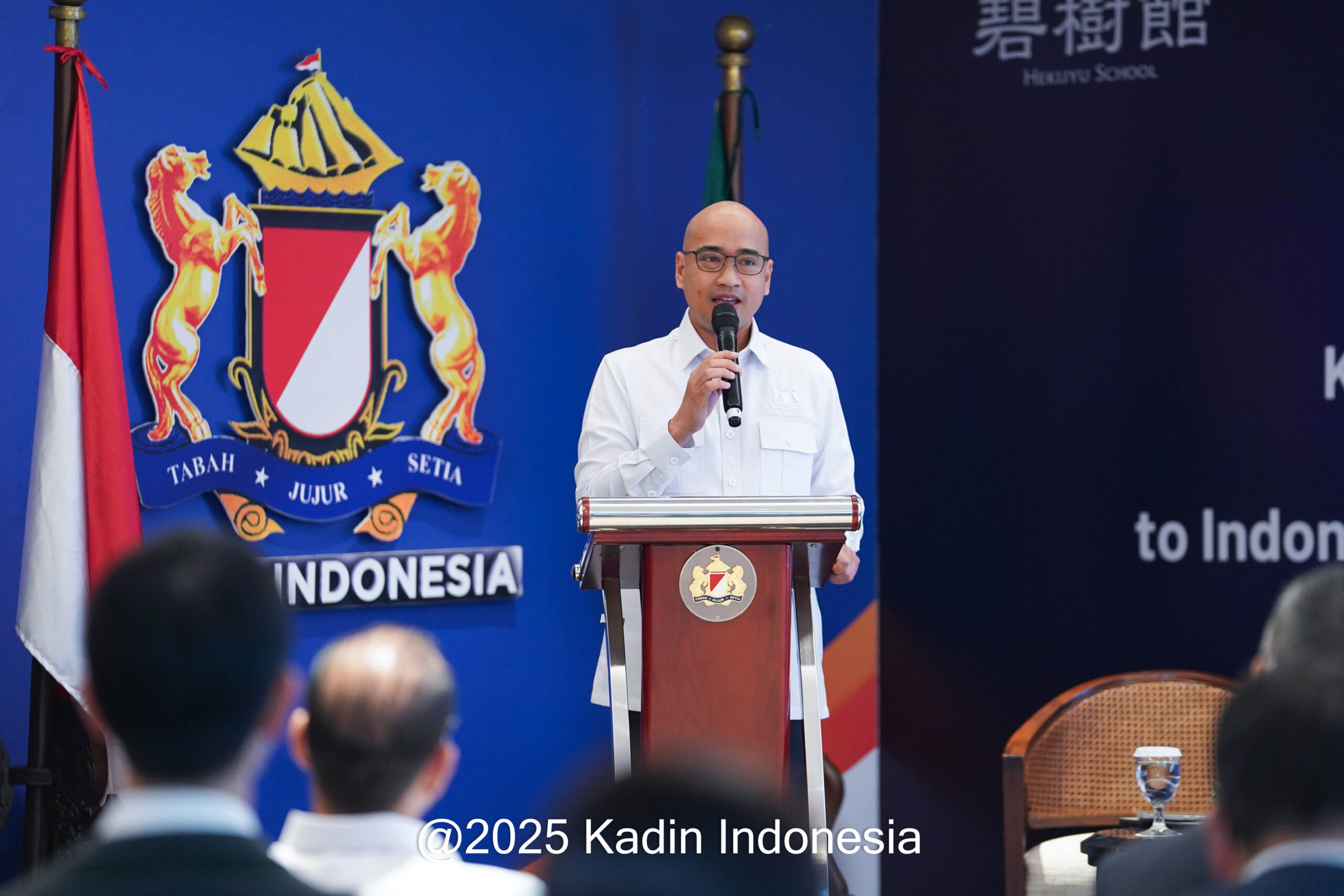
In his opening presentation, Mr. Mulya Amri, Ph.D., Executive Director of Kadin Indonesia Institute, outlined Indonesia’s economic dynamics and key growth opportunities. Household consumption remains the largest contributor to GDP, while transportation and warehousing services hold the highest growth potential. Despite Java contributing 50% of the national economy, regions such as Sulawesi and Kalimantan exhibit the fastest growth (~5.24% annually).
Indonesia’s historical economic growth ranges from 4.5–6.6%, lagging behind Japan and Korea during their rapid development phases, raising the question of whether Indonesia can achieve 8% growth in the coming years. Mr. Amri highlighted the government’s 8 Super Priority Programs, including MBG, universal health checks, agricultural productivity, excellent schools, welfare guarantees, higher civil servant salaries, rural infrastructure development, and increased state revenue. Kadin supports these priorities through its 4 Quick Wins: Free Nutritious Mea (MBG)l, Affordable Housing (RTLH), Free Health Checks (PKG), and Empowerment of Migrant Workers (P2MI).
Insights from Resource Persons
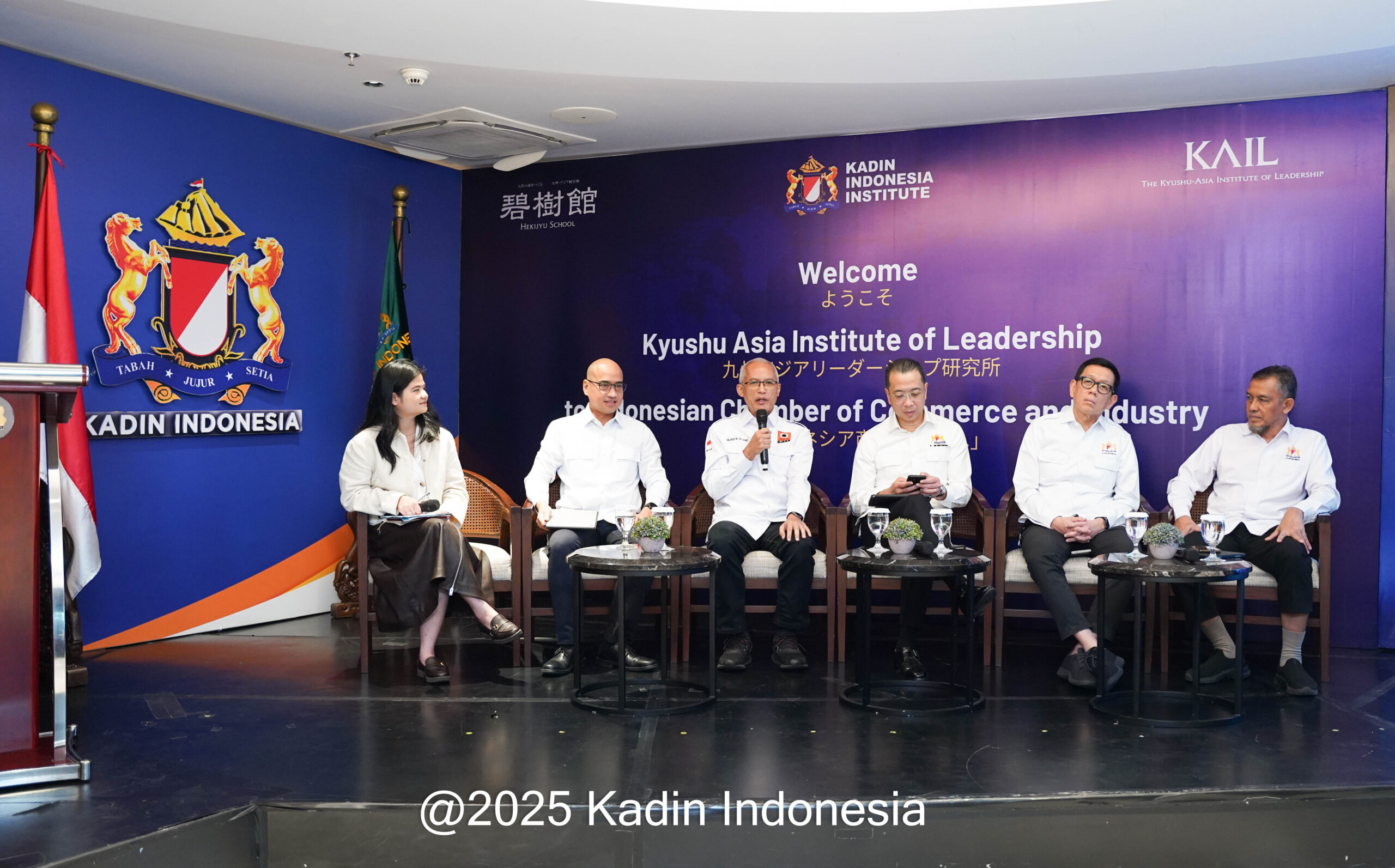
Mr. Gilarsi Wahju Setijono – Chairman of the Standing Committee for Electric Vehicles
Mr. Setijono discussed transportation and energy, noting that over 80% of vehicles in Indonesia are Japanese-branded, contributing more than 25% of national carbon emissions. Electric vehicles (EVs) offer a “light at the end of the tunnel,” with opportunities for collaboration in EV battery production and nickel downstreaming for NMC. By 2045, all vehicles are expected to use renewable energy (batteries or biofuels). Currently, 86% of Indonesia’s energy generation relies on fossil fuels, but per capita consumption is projected to rise from 1,400 kWh to ~4,000 kWh, with renewable energy accounting for at least 25%.
Mr. David Utama – Vice Chairman for Health, Kadin Indonesia
Mr. Utama highlighted healthcare access and quality challenges. Indonesia has only 0.47 doctors per 1,000 people (WHO standard: 1; Japan: 2.8), with specialist doctors at 0.17 per 1,000. While 90% of medicines are produced locally, most innovative R&D comes from international companies, and only 25% of medical devices are domestically manufactured. The healthcare sector is currently being integrated into national economic planning through a white paper to enhance accessibility and quality.
Mr. Wiwie Kurnia – Chairman, Standing Committee on Multifinance and Alternative Financing
Mr. Wiwie addressed the financial sector, noting the huge market potential with 280 million people, 70% of whom are in the productive age group. Microfinancing penetration is 80% through banks and 20% via non-bank institutions. Collaboration opportunities include expanding investment to medium-sized Japanese firms, technology adoption, and product innovation.
Mr. Wisnu Wibowo – Chairman, Standing Committee for Vocational Training, Kadin Indonesia
Mr. Wisnu focused on education and workforce readiness. Despite 12 years of compulsory education with a STEM focus, skill gaps and low workforce preparedness remain. Reformed vocational regulations (Presidential Regulation No. 68/2022) align training centers with industry needs, covering human resource empowerment, curricula, certification, and public-private partnerships to ensure a skilled and future-ready workforce.
Delegation Profile
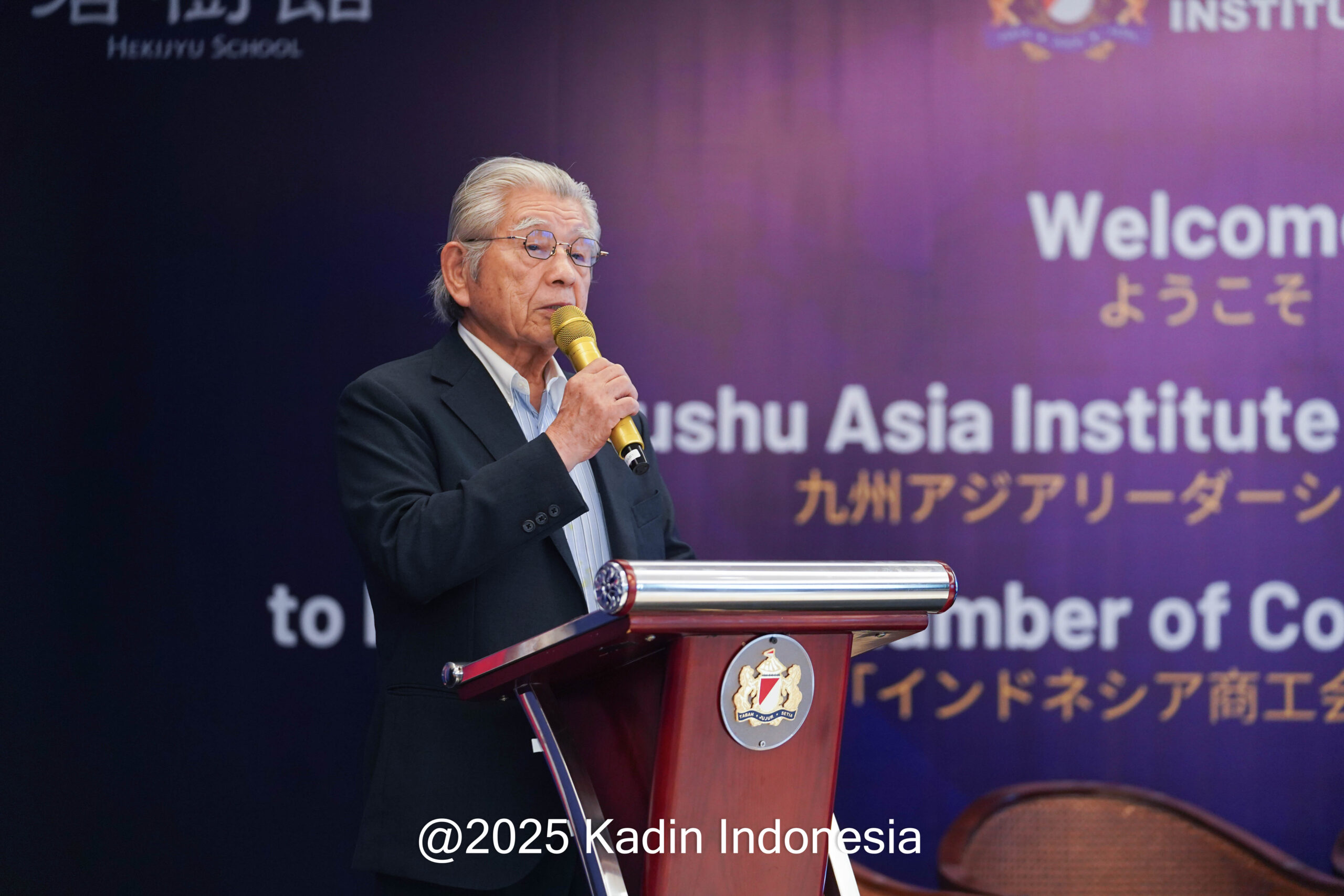
The KAIL delegation consisted of 26 participants representing strategic industries, including transportation, logistics, energy, construction, finance, healthcare, IT, food manufacturing, shipbuilding, and local government. Approximately 80% were from the private sector, 15% from government, and 5% from academia or associations. Participants held senior positions, with roughly 9 in top management, 13 in middle management, and 4 public officials. This composition enabled a high-level exchange of insights relevant to potential collaboration with Indonesia.
Discussion Highlights
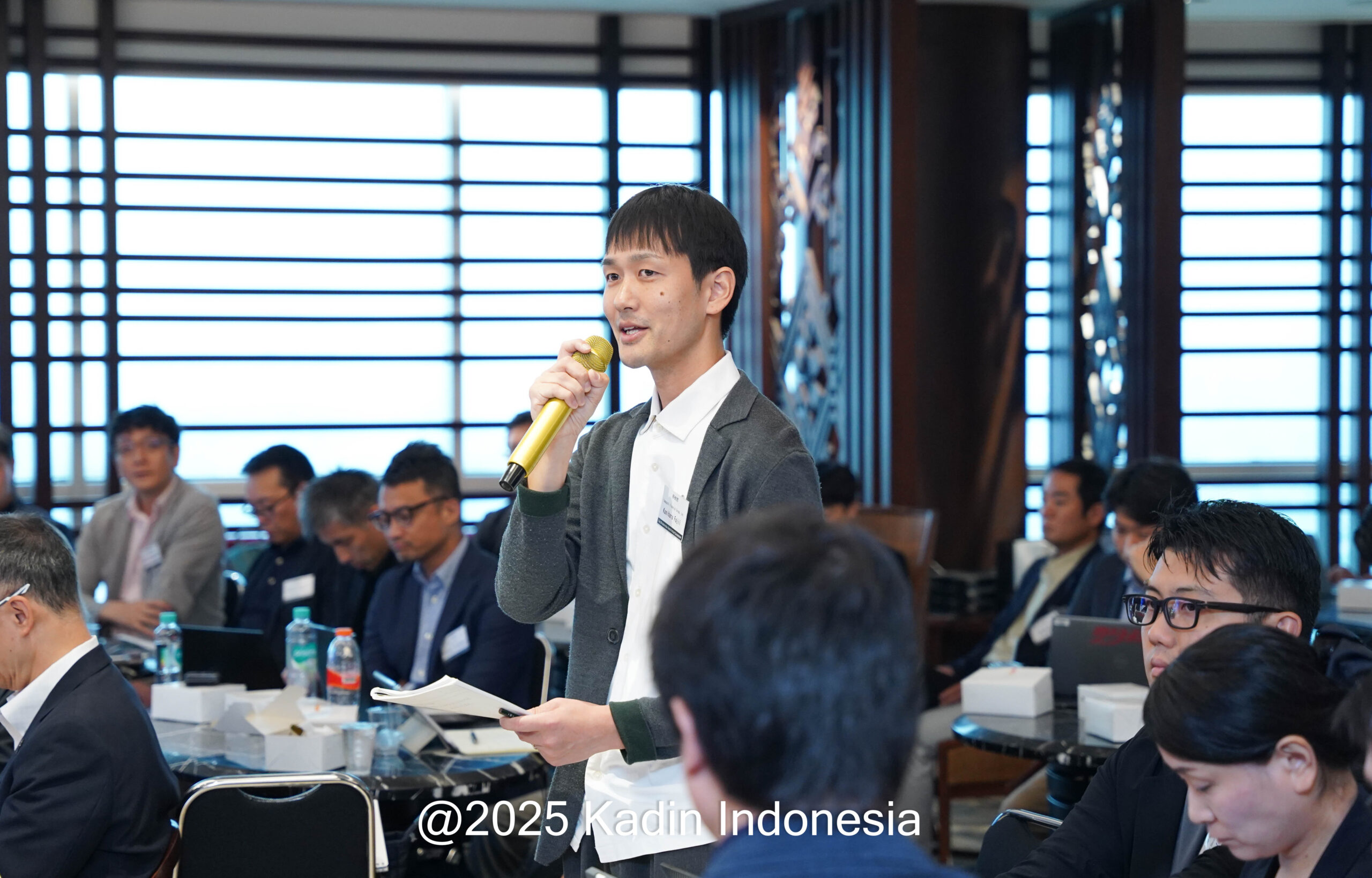
The Q&A session raised practical and strategic issues, including market entry procedures for Japanese companies, EV infrastructure limitations with hybrid dominance, early-stage 3R initiatives for IT products, and telemedicine solutions requiring stable 5G connectivity. Environmental management topics highlighted coastal flood mitigation along the North Java Corridor (Pantura) using nature-based solutions such as mangrove restoration, alongside large-scale sea dike projects.
Key Takeaways & Recommendations
The dialogue underscored several opportunities and challenges:
- Opportunities: Indonesia’s household consumption, transportation, renewable energy, healthcare, education, and finance are promising entry points for bilateral collaboration.
- Challenges: Low productivity, persistent skills gaps, limited healthcare capacity, and heavy reliance on fossil fuels remain structural barriers.
- Partnership Potential with Japan: Areas for collaboration include mid-size investments, EV and battery technology, pharmaceutical and medical device development, vocational training, and digitalization.
Overall, the session enhanced Japanese participants’ understanding of Indonesia’s socio-economic landscape and opened pathways for broader bilateral partnerships, providing a foundation for sustained collaboration between Kadin Indonesia and KAIL.
The KAIL delegation expressed strong interest in continuing its collaboration with Kadin Indonesia Institute (KII) and Kadin Indonesia, envisioning future initiatives that extend beyond Kyushu to encompass partnerships across all of Japan. They aim to explore broader industry collaborations, foster sustainable development, and strengthen people-to-people and business ties between Japan and Indonesia.

